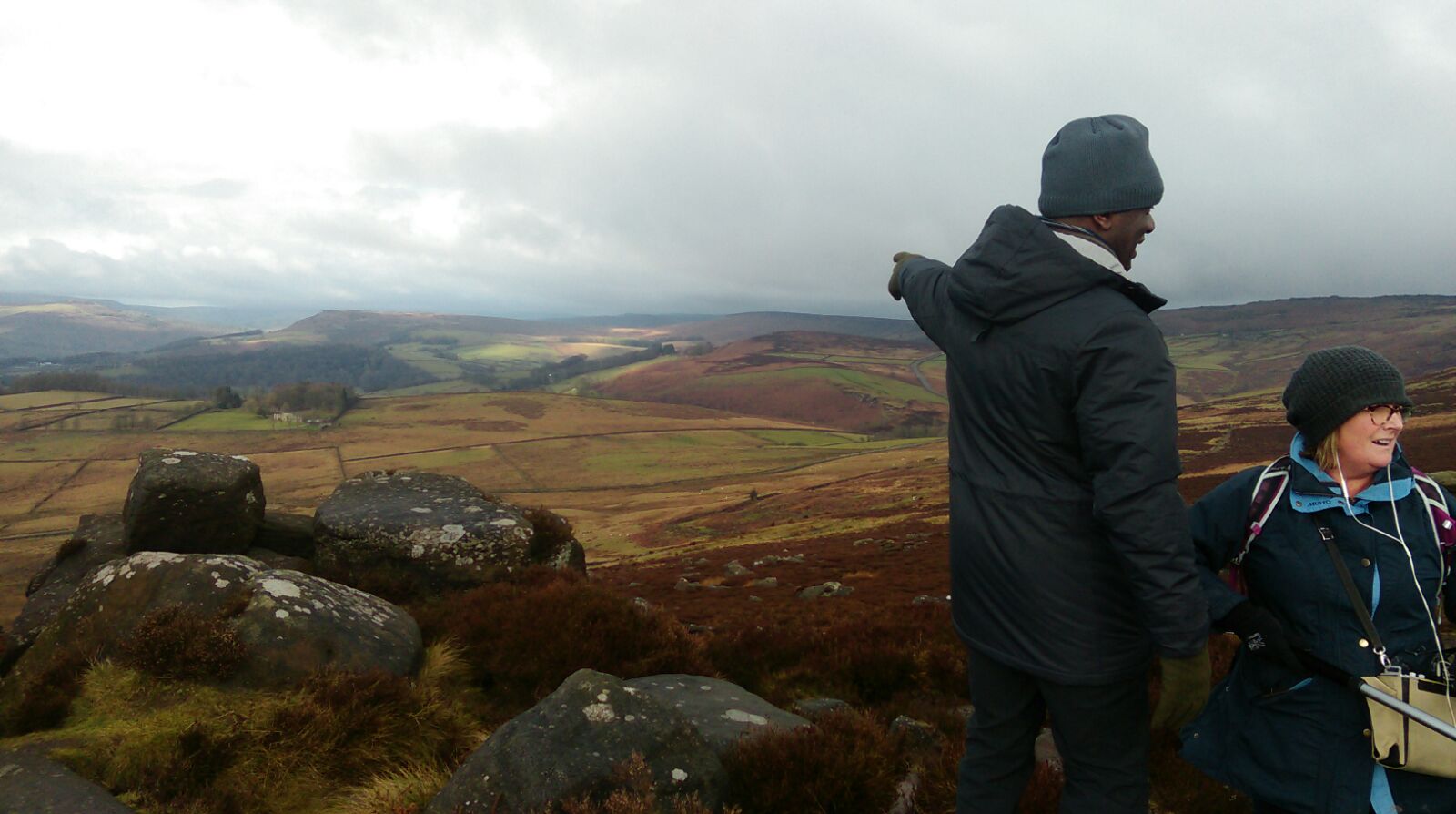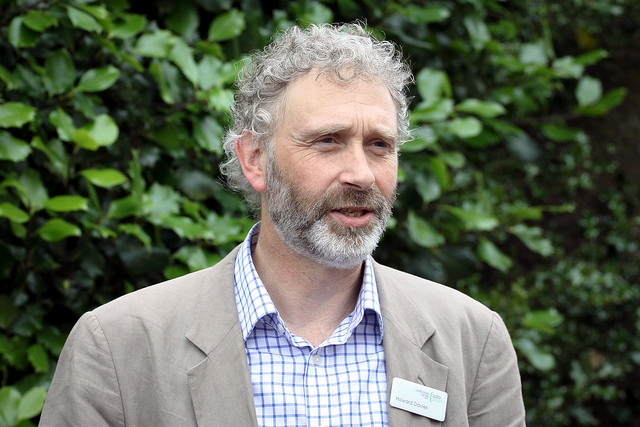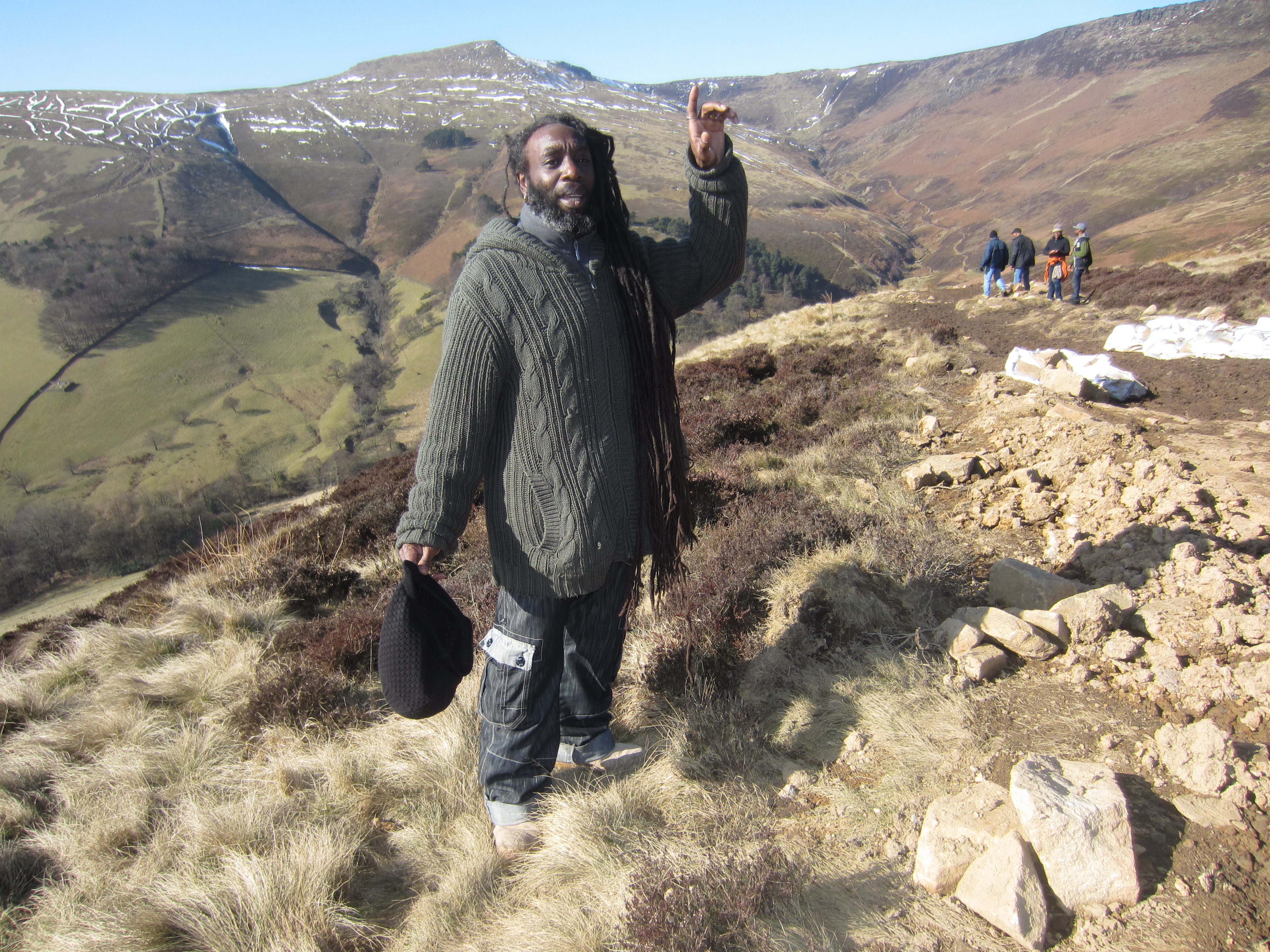What are Areas of Outstanding Natural Beauty (AONBs)?

SEM’s Maxwell Ayamba was the keynote speaker at this year’s conference of chairs and chief executives of the National Association for Areas of Outstanding Natural Beauty (AONB) in London on November 28th 2019. Considering there are 46 AONBs in the UK, 34 in England, 8 in Ireland and 4 in Wales very little is known about AONBs within the circles of UK’s Black & Ethnic Minority Communities according to Maxwell.
AONBs are under- funded and have been historically overshadowed by UK’s 15 National Parks which receive £46 million of tax payers’ money a year to promote access for all. Maxwell noted that majority of BME people have not heard about AONBs, what the stand for and what they do while those managing them have done little on their part to promote these beautiful landscapes to BME communities. He noted that the Government’s 25 Year Environment Plan and the Julian Glover Review on designated landscapes to promote access for all makes it mandatory for National Parks and AONBs to use their governing and management structures to promote diversity and equality of access to all designated landscapes.
Maxwell was of the view that those working in National Parks and AONBs lacked the skills and cultural know-how to use the most appropriate types of communication tools to engage with diverse communities and, also the need for change in organisational culture. He was of the view that in this era of the anthropocene with climate change a critical issue it was high time that environmental organisations became more diverse and inclusive.
He explained that the issue of ‘cultural severance’ due to histories of migration and urbanisation has resulted in the lack of ‘cultural capital‘ known as ‘funds of knowledge’ or repertoires among migrant communities about the ecological history of the UK. Funds of knowledge according to Maxwell are the products of socio-cultural practices and experiences constitutive in the habitus of people coming from different sociocultural backgrounds with varied socio-economic political histories.

Maxwell further emphasised the issue of the ‘Fields of power’ which is integral within environmental organisations leading to the exclusion of BME communities who are constantly engaged in a specifically symbolic struggle in terms of issues such as racialised spaces, rurality, identity and nationalism. He was of the view that not until there’s a change in relation to the fields of power within the environmental sector involving an act of reciprocal giving and receiving by environmental organisations mediated by conditions of social power relations the exclusion of BME people in the environmental field will forever remain.
Maxwell went on to explain how there exist a locus of power struggle within the governing and managing structures involving those who truly want to bring about inclusion and those who don’t be it economic, educational, political or environmental. He noted that the concept of the fields of power can therefore be used as either a tool for inclusion or exclusion when it comes to promoting access to and participation in the environmental field when it comes to BME people.
He was therefore critical of the Glover Review, saying just as all other past reviews it has fallen short on how to tackle these entrenched historical issues, noting that BME people’s dispositions and attitudes towards participation and use of natural spaces is informed by their perceptions. This is because people develop individual dispositions in response to the objective conditions they encounter in society which goes to inform their ‘lived experience, he concluded.

Howard Davies Chief Executive of the National Association AONBs in his annual summary report explained how AONBs are some of our most precious landscapes. “They are immensely important locally but also protected nationally for the benefits they provide the nation. The flow of goods from AONBs, such as food, water, nature, tranquility, and opportunities for recreation and spiritual refreshment are rich and plentiful. These benefits should not be exclusively available to a small sub-set of the nation but be available for everyone, however currently they are not”.

Howard said, “it was therefore incumbent upon us, as stewards of these special places, to do all we can to ensure we are actively removing barriers that both intentionally and unintentionally stop people benefiting from the full value that beautiful landscapes offer. The fair distribution of benefits is essential to ensuring a sustainable society, and need for a policy based on mutual respect and justice free from any form of discrimination or bias is fundamental in ensuring the AONB designation delivers to its potential in the 21st century”.
“We are keen to work with as many people as possible willing to constructively challenge our current way of working, and support us in our move to ensure our nationally important landscapes are truly available for the nation. I see our emerging work with the Sheffield Environment Movement, and with Maxwell Ayamba in particular, as opening a new door for us to help ensure these precious landscapes are as important to future generations as they have been in the past.”
Philip Hygate NAAONB Chairman explained that although these spaces were created after the war time, inequality of access still remain a problem. He noted that National Parks and AONBs have failed to live up to the vision of the1940s about what national parks were created for adding, we want to ensure the Glover Review will serve as the beginning to start addressing this issue of social injustice of national parks as places for only the privileged.
Corrine Pluchino, Chief Executive of the Campaign for National Parks (CNP) said “the CNP supports the recommendation in the Glover Review however, it is now a question of going about delivering that vision and ambition in terms of making National Parks accessible to everyone”. She emphasised that this should be along the lines of how these spaces should be perceived by Government and members of the public, and above all, how they are accessed, used and enjoyed by everyone in our society irrespective of race, age, class, ability, status and gender.